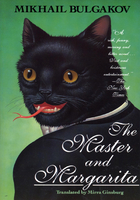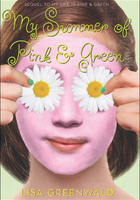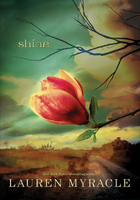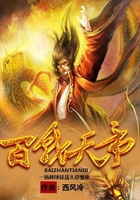The next morning Ada slipped out early to go see her mother. Corinne considered joining her but fell back asleep before she could decide. After another hour of sleep, she pulled on the first dress she could find from a pile on the floor and trudged upstairs to the bar for breakfast. The tables were populated with the morning crowd of those who worked daylight hours for Johnny. Most were groggily clutching white mugs of coffee. A few were eating from the breakfast spread on the sidebar.
Gabriel was at a corner table—alone, predictably enough. The Cast Iron crew was slow to trust and even slower to pleasant chitchat. Corinne sighed to herself, then loaded up a plate with eggs and toast and joined him.
"Sleep well?" she asked.
He just looked at her. His short brown hair was as disheveled as it had been the night before, though every part of his attire, from his plain collared shirt to his pressed black trousers, was fastidiously neat.
"That's called a question," Corinne said when he didn't reply. "In polite society, it involves an answer."
His eyebrows shot up, and Corinne could detect a hint of what could have been a smile or a smirk around his mouth. The movement did nothing to soften the severe line of his jaw. The tousle of his hair made the angles on his face even more pronounced, and there was something etched in his features that she couldn't quite pinpoint. Like a gaunt hunger.
"I wasn't aware that I was in polite society," he said.
"You can't hold last night against us," Corinne said, turning her attention away from his jawline and back to her toast. "Not every day here involves asylum escapes and police raids."
"I'm not sure I believe that."
Corinne smiled and hid the expression with another bite of toast. Now that she'd had a few hours of sleep, she had decided to play nice with Gabriel Stone. Johnny wasn't an idiot, and he didn't let just anyone join his crew. If he'd hired Gabriel, there was a good reason for it.
"I thought we'd start with the tour," Corinne said.
"Don't you want to finish your breakfast first?"
"No need. There's the stage, the backstage door—that's where the musicians shoot the breeze when they're waiting for their set. Beside that is the kitchen door, which leads, predictably enough, to the kitchen. You've been to Johnny's office downstairs, and the other rooms down there are all private, aside from a few closets."
"Thorough," he said drily.
Corinne ignored his tone and continued. "Danny runs the bar every night, but don't believe a word he says about me because he is a bitter, bitter man, and I am a darling. I'm sure you met Gordon, our resident charmer. He's usually only on duty when the club is open, to keep drunk patrons from snooping. There used to be a show every night, but the new law complicates things."
"I'd say police raids are more than just a complication."
"Debatable. Anyway, Ada and I had it covered."
"Right," he said.
It wasn't the way he said it but his fleeting expression that gave Corinne pause. "What?" she asked.
He hesitated.
"Look," she snapped. "If you've got a problem with Ada, then—"
"I don't have a problem with Ada."
"Then is it women in general who shouldn't be handling things?"
He sat back in his chair, obviously bemused. "I didn't say anything like that," he replied.
Corinne eyed him and finished off her toast.
"Sorry," she said once she swallowed. "I guess I'll let you actually say something stupid before I berate you for it."
"Appreciate it."
Corinne stood up. "Nice chat," she said. "Now if you'll excuse me, I have to change into something more suitable. We're meeting Ada at ten. I'll explain on the way."
Corinne dropped her dishes off in the kitchen and went downstairs. She and Ada didn't have a wardrobe in their room, so finding a dress that wasn't hopelessly wrinkled was a challenge, although Ada never seemed to have a problem. Corinne dug her maroon silk out of a crate. Not the right material for the season, but with its belted waist and gold thread trim, it was her most respectable dress. She pulled on stockings and her black suede kitten heels. Ada's black felt cloche finished the ensemble, and Corinne grabbed her coat off the pile of clothes at the foot of her bed and ran out the door.
She made it two steps before running into Guy Jackson.
"Slow it down, sweetheart," he said, gripping her arms as she caught her balance.
Corinne shook him off. "You forget my name already?" she asked.
Jackson grinned at her toothily. He was of average height, with compact muscles, a shaved head, and permanent stubble on his chin. His brown eyes were always either darting or leering. Right now it was the latter. Corinne slipped her coat on and started for the stairs. He joined her.
"Good show last night," he said in a pleasanter tone. "Your friend all right?"
"Ada's fine."
"Glad to hear it. Haversham's a nasty place."
At the top of the stairs, something occurred to Corinne and she turned around. He was a couple of steps lower than her, making their height even.
"Did you go into the basement?" she asked. "What are they doing down there?"
His brow furrowed at the question. "I don't think you want to know what's going on down there, sweetheart," he said, scratching his stubble absently. "I think you'd be better off praying that you never have to find out."
There was something about his tone that made her feel very young all of a sudden. Maybe it was the lack of his usual smarmy self-satisfaction, as if he were talking to a child and not a fellow member of Johnny's crew. Other girls her age were sitting in classrooms right now, listening to lectures and passing secret notes. Another day she might have laughed off his uncharacteristic concern, but the sight of that hemopath dangling limply between the two HPA agents was still fresh on her mind. She and Ada had been only a hundred feet away. It could have just as easily been either of them.
Corinne backed away from the stairwell and went into the club, telling herself that Jackson probably knew as little about it as anyone else and she didn't have the time to waste.
"Be careful out there," Jackson called after her, his voice dipping again into smugness. "Ironmongers don't care who your daddy is. They'll chain and drain you same as the rest of us."
With gritted effort, Corinne managed to ignore him. She knew he was just trying to get a rise out of her, which wasn't much of a challenge, but she did enjoy deliberately disappointing him on occasion. Gabriel was waiting for her near the front door, in a black coat and brimmed hat. Corinne grabbed his sleeve and yanked him outside before Jackson could catch up.
"Everything all right?" he asked, letting her drag him along for a few steps.
Corinne released him and forced herself to take a breath. The sun was shining today, but a bitterly cold breeze pricked at her exposed skin.
"We're going to be late" was all she said. She slipped on a pair of gloves from her pocket and started walking at a more reasonable pace.
Gabriel fell into step beside her, and they headed northeast on Tremont, toward the financial district. The war in Europe had ended only two months before, and the sides of buildings were still plastered with posters, telling passersby to "Buy war bonds!" and "Help America's sons win the war!"
She and Gabriel were both quiet as they walked, and Corinne was just beginning to think that the silence had shifted from peaceful into awkward when Gabriel spoke.
"Okay, I have to know. How did you pull off the Bengali banker?"
"What?"
"I asked Johnny, but he just said that you and Ada have a knack for the ridiculous and changed the subject."
Corinne smiled at that and glanced at him. His expression was folded in deep thought.
"I mean," he went on, "obviously Ned Turner must have been a gullible idiot who lucked his way into office, but the papers said there was a crowd of people on the bridge. Someone must have seen through it."
Corinne laughed.
"Ned Turner? That suspicious son of a gun? Don't worry, our councilman is no idiot. You know he was the one who first started wearing an iron ring as a way to identify hemopaths when he shook their hands? Every jeweler in the city made a mint after that story broke."
"I don't see how you did it, then."
They passed under the tracks of the elevated railway, and a train rumbled overhead. Sunlight glinted off its windows as it passed. Corinne walked a little faster until they were free from the crushing weight of the steel and iron.
"It's not that hard to follow," she said. "The Bengali banker is a long con based on the pig in a poke. But instead of foreign banknotes, we used elephants."
"Why elephants?"
Corinne shrugged.
"Currency can be counterfeit. No one's going to pay for foreign bills without having them examined. When Ned Turner saw those elephants, he was practically throwing money at us. No one can counterfeit an elephant."
"No one except a wordsmith."
"No one except an exceptionally skilled wordsmith," Corinne said, skipping over an uneven patch of concrete. "Elephants aren't particularly subtle."
"I still don't get it."
"It's not that complicated. We pretended we were with a failing circus from Canada, selling off our attractions as we traveled south. The Franklin Park Zoo is managed by the city, and Turner was eager to make his mark as councilman. We offered to sell our elephants for an absurdly low cost—or I guess it was. I'm not entirely sure what the market value for elephants is. Honestly, I didn't expect him to make such a public spectacle of the deal."
Once the newspapers had been tipped off, Ada wanted to call it quits, but Corinne couldn't resist the challenge. If they could swindle the councilman on a bridge full of citizens and press, then they would be the talk of Boston for decades to come. Hemopaths had been running small cons in the city for as long as Corinne had been alive, but no one had ever pulled off anything like her version of the Bengali banker. The fact that the councilman was the chief proponent of the movement to illegalize hemopathy only made their success that much sweeter. She just wished she could have seen Ned Turner's face at the moment the elephants faded into nothing.
"I understand the con," Gabriel said, with only the barest hint of irritation in his voice. "I just don't see how you tricked a Columbia graduate with twenty years of politics under his belt into thinking there was an elephant on the Harvard Bridge."
"It was four elephants," Corinne said. "And in my experience, the smartest person in the room is always the easiest one to fool."
Gabriel shook his head. "Maybe if you catch them off guard. Maybe years ago before anyone knew what hemopaths could do. But as soon as I hear you start quoting Wordsworth or Keats, then I know that you're about to create an illusion. I know it's not real."
"First of all, I would never waste breath on one of the Romantics. Second of all, are you really suggesting that I couldn't fool you, right here, right now?"
Corinne stopped walking and turned to face him.
"How could you, if I know you're about to do it?" Gabriel asked.
"Take off your hat," Corinne said.
"What?"
"Let's find out if you're smarter than the councilman. Take off your hat."
"I just said—"
"If it only works on the weak brained or the gullible, then you have nothing to worry about."
Gabriel looked ready to protest further, but he removed his hat, holding it in both hands. There were a few people passing on the sidewalk, but they were all bundled in their coats, lost in their own business.
"Now, what are you holding?" Corinne asked.
With a pained expression, Gabriel tried to keep walking, but Corinne blocked him.
"I know we just met last night," she said. "So here's the first thing you should know about me: I never back down from a challenge."
"I didn't challenge you to anything."
"Two minutes," Corinne said. "That's all I need, I swear."
Gabriel glanced around them at the passersby, who weren't paying them any mind. He sighed his consent.
"What are you holding?" Corinne asked.
"My hat."
" ' 'Twas brillig, and the slithy toves Did gyre—'"
"What the hell are—"
Corinne pressed her finger against his lips. He let out a startled breath, warm even through her glove. She forged ahead. Her left hand was in her pocket, gloved fingers wrapped around the brass timepiece. Its familiarity helped her find focus.
" 'Did gyre and gimble in the wabe. All mimsy were the borogoves, And the mome raths outgrabe.' That ought to do it."
Corinne stepped back and crossed her arms in satisfaction.
"Do what?"
"What are you holding?"
"My hat."
"Are you sure?"
"Of course I—" Gabriel looked down and saw that he was holding a soft black rabbit.
He cried out and dropped it, stumbling back a few steps into a hunched old lady in a Sunday hat who whacked him across the back with her walking stick.
Corinne was laughing so hard, she gripped her stomach and doubled over. People were starting to stare now. Gabriel regained his dignity and approached the animal with the caution of a soldier approaching a land mine.
"It's not real," he said, but it came out as more of a question.
"Touch it," Corinne said. "It won't bite. Probably."
Gabriel knelt down and prodded the fur hesitantly. The rabbit looked at him and twitched its nose.
"I find Carroll especially potent for animals," Corinne said. "There are some wordsmiths who swear by Blake, but Carroll captures the motion best, I think."
Gabriel shook his head, still prodding at the rabbit. "I have no idea what you're talking about."
"I'm just proving that you have no idea what you're talking about, Mr. Stone. Now pick up your hat. You're causing a scene."
Gabriel started to protest, but before he could make a sound, the rabbit had become his hat once again. He picked it up, carefully, and put it back on his head. He stood up, watching Corinne with a new look in his eyes. Fear with a smidgen of awe. Her favorite.
"Come on," she said. "Ada will be waiting."
Corinne tucked her hand into the crook of his elbow and tugged him gently along. The brick and stone businesses of the financial district dominated the cityscape, casting vast shadows across the lines of sleek black Oldsmobiles and low-riding roadsters in the street. As they got closer to the heart of the district, the car horns and sputtering exhaust fumes drowned out all memory of the Cast Iron's sleepy neighborhood.
"I don't get it," Gabriel said after a few minutes, his hand drifting again to his hat. "I knew it was an illusion. How did it feel so real?"
"You've heard the phrase mind over matter?" she asked. "Well, that doesn't apply here. When I recite, I give you whatever image I want, but I don't have to convince you it's real. Your own imagination does it for me. It's a rare person who can overcome their own mind, and the better your brain works, the stronger the illusion."
"Making the smartest person in the room the easiest one to fool."
"Now you're on the trolley."
Gabriel just shook his head.
"What?" Corinne looked up at him.
"It's bizarre. Poetry of all things."
"Why not poetry? Makes perfect sense to me," Corinne said. "When a reg quotes Lewis Carroll at you, what happens?"
"I think they're off their rocker."
"You might imagine the gyring and gimbling of the slivy toves or the mimsy borogoves, and as the poem progresses you might start to feel the Jabberwock coming closer, picture the vorpal blade in the hero's hand."
"I suppose."
"When I quote Lewis Carroll at you, I can make you see so much more than that. I can make you see anything I want."
His brow was wrinkled in concentration. Corinne imagined he probably tackled most problems in his life with that exact same expression.
"So Ada is a songsmith?" he asked.
"Probably the best in Boston. She's the only reason we can pull off any con."
"Why's that?"
"I can make you see all the rabbits I want, but you said it yourself—I can't make you trust me."
Gabriel's thoughtful frown deepened, but before he could formulate a question, they had reached their destination. Corinne led the way down a side street, away from the busiest thoroughfares. Ada was waiting for them in front of an empty storefront, buttoned into her navy blue coat and adjusting the satin lining in her cream-colored cloche. Her hair was styled into flat twists, protected against the dry winter. When she saw them, she replaced her hat and picked up her violin case from the sidewalk.
"How's your mother?" Corinne asked.
"Angry that I disappeared for two weeks," Ada said. "She yelled at me for ten minutes in Swahili, then another five in Portuguese. It was a lovely visit."
She cast Gabriel a curious glance.
"He's playing tourist," Corinne said. "Johnny asked us to show him the ropes."
"Well, have a seat," Ada told him, pointing to a bench just across the street. "We don't have a lot of time. Corinne—the jeweler will be here any minute."
"I'm ready. You're the one who hasn't tuned yet."
"Wait," Gabriel said as Ada knelt to open the case and retrieve her instrument. "Are you two pulling a job right now?"
"We have to hit him today," Corinne said. "He only carries cash every second Friday."
"You might have told me," Gabriel said.
"What, did you think this getup was all for you, Mr. Stone?" Corinne twirled to show off the flounce of her dress under her coat.
Gabriel glanced briefly heavenward. "It never occurred to me to assume anything about your wardrobe, Miss Wells."
Ada laughed and plucked at the strings of her violin.
"Could you drop a few coins in there?" she asked Gabriel, nodding toward the case at her feet. "I'm trying to look like a busker."
Gabriel obliged, though he was still watching them both warily.
"There he is," Corinne said, whirling to face them. "Gabriel, go sit down. For cripes' sake, you look about as inconspicuous as a smoking gun."
Gabriel frowned at her, but Ada started playing, and he seemed to forget what he was going to say. He crossed the street and sat down on the bench. Corinne patted her hat down and then started to pace up and down the sidewalk. This street was emptier than most in the district, with only a few businesses and negligible traffic. Corinne had seen their mark turning the corner up ahead, his brimmed hat low over his ears, his chin tucked into his collar against the cold. There was no one else in sight. It was now or never.
"Help me out with a little tragedy, won't you?" she murmured to Ada. "I'm no thespian."
Ada obligingly sailed through a few minor chords. Corinne felt the wave of sorrow almost instantly. She had no trouble summoning tears after that. Provided they were focused, hemopaths could generally remain unaffected by other hemopaths, but if they were caught off guard—or wanted to be—they were just as susceptible as regs.
By the time the man had reached them, Corinne's eyes were red and swollen. She paced more quickly, wringing her hands and making short, intermediate sobs. As the man tried to pass, she bumped into him and sprawled backward to the concrete.
"Sorry about that, miss," the man said, tucking his newspaper under one arm and offering her a hand.
Corinne took it and immediately felt the iron of his ring, even through her glove. She jerked her hand away and made a show of dusting herself off. She hoped her weeping was enough to hide her wince.
"Oh," she said, between gasps. "Oh, he's going to be so angry."
The man watched her for a moment, hesitant. Ada changed her tune, very slightly, and his expression changed with it.
"Is there something the matter?" he asked Corinne. He was a short man in a fine black suit, gripping a brown leather briefcase in his left hand.
"Oh," she said. "I don't want to trouble you, sir, only—only—I wonder if perhaps you could help me."
He shifted his weight from one foot to the other, glancing past her down the street. Ada slowed her song to a leisurely pace, drawing out each note with ringing clarity. The man set down his briefcase.
"Perhaps I can," he said to Corinne.
"I've lost a huge sum in a bet—nearly a year's worth of savings! My beau is going to be furious with me. The money was set aside for when we're married, and I promised him I wouldn't gamble anymore—only I thought for sure that this would pay out."
"Gambling is a terrible vice for a young lady," the man said.
Corinne started sobbing again. "I know," she wailed. "If he finds out, he'll leave me. I know he will."
The man was starting to look impatient again. "Miss, I'm sorry, but I don't see how I can help."
"That's just it," Corinne said. She grabbed his sleeve, careful to avoid the hand with the ring. "That's why I'm here. I've been in that pawn shop all morning trying to make the clerk see reason, but he doesn't believe me. He thinks I'm a … a … woman of the night." She spoke the last in an exaggerated whisper.
Ada sniggered and dropped a few notes but quickly righted herself.
The man scratched his head beneath his hat, revealing a receding hairline.
"I'm still not sure how I can help," he said.
"Can I tell you something first?" Corinne asked, her voice softer.
The notes of Ada's violin wafted above and around them. The man's face was lax, and Corinne could see a familiar blurriness in his eyes. She had learned to recognize it a long time ago. Clear eyes were a warning sign—there were those rare few who weren't as receptive to Ada's gentle nudging.
Corinne's hand moved to his lapel, and she tugged him closer. She whispered in his ear for almost thirty seconds. When he stepped back, he blinked at her, expression even more dazed. She had opted for a few lines from a volume of poetry that Ada had given her a couple of years ago. Edna St. Vincent Millay hadn't gained much renown yet, but Corinne was betting on a Pulitzer by the time she turned forty.
"I'm not sure I catch your meaning, miss," the man said, still blinking.
If Ada hadn't been churning out a healthy dose of trust mingled with confusion, he would no doubt have fled after the first couplet. Or garroted her with the thin iron chain she could see peeking out from beneath his collar. There was no truth in the belief that pure forged iron made the wearer immune to hemopathy, but it didn't stop regs from paying through the nose for it.
"Look at what I have here," Corinne said, holding up her cupped hands. "Do you see it?"
The man nodded fervently.
"It's a golden brooch," she said, firming the illusion. "Studded with real diamonds. Have you ever seen the like?"
He shook his head.
"That's a mighty fine trinket, miss," he said. "Where did you get such a thing?"
"My grandmother gave it to me. I'm sure it must be worth at least a hundred dollars. That's all I need—only I can't get the clerk to buy it from me. He keeps threatening to call the police."
She sniffled and watched the befuddled man through her eyelashes. She and Ada had been keeping tabs on him for two months. He was one of the jewelers in Boston who had made a small fortune selling iron jewelry to regs as a ward against hemopaths, but it was what he sold under the counter that caught their attention. Iron knuckles, iron-braced clubs, and iron barbs, no bigger than a needle, that were designed to break off in the skin—a special kind of torture for hemopaths, whose blood had a visceral aversion to iron that science had yet to explain. They were the sorts of weapons that would appeal only to ironmongers, those citizens who had decided in the past year that the surest way to stop hemopaths from scamming them was to grab any hemopaths they could find—criminal or not—and string them up in straitjackets of iron chains.
Corinne thought it was only fair to exact a tax on the profits he made at the expense of hemopaths. The only question was whether his lack of scruples extended to taking advantage of a wide-eyed, desperate girl. The brooch he could see in her hands would be worth three or four times what she was asking. She could practically read the thoughts flashing across his face in quick succession. He wasn't a particularly subtle man.
She knew that they had him.
"Maybe I can help," he said. "I've been looking for an anniversary present for my wife. What if I bought it from you?"
"You would do that for me?" she asked. Ada would tell her later that she was laying on the innocent doe act a little thick, but the jeweler was too entranced by his own greedy imagination to notice.
"You said it was worth a hundred dollars, right?" He knelt down to open his briefcase and pulled out a fat envelope. "I was just on my way to the bank."
"Oh, I can't do that," Corinne said, clutching her hand to her chest. "What if it's worth much less than that? I don't want to cheat you. Maybe this was all a mistake. I'll just find another pawn shop."
"My wife will love the brooch," the man said. "That's worth the money to me."
He spoke with such gentle reassurance that Corinne had to bite her lip to keep from laughing.
"Only if you're sure," she said, hesitantly extending her hand.
The illusion might not hold much longer—it depended on how well the poem stuck in his mind. He was thinking so hard about the profit he would make selling the brooch that the verses were probably being crowded out with every passing moment.
He counted out five twenty-dollar bills and pressed them into her palm.
"My wife will be so pleased," he said, tucking the envelope and the brooch into his briefcase. Before he could snap it shut, Corinne let out a small gasp as the breeze caught one of the bills in her hand. It swirled into the road.
"Oh no," she cried, trying to sound as helpless as possible.
"I'll get it," he told her, checking for oncoming traffic and then ducking into the street. While he stooped to pick up the bill, back turned, Corinne opened the briefcase and pulled the rest of the bills out of the envelope. She shoved them into her coat pocket and straightened right as he turned around.
"You're too kind." She summoned a few more tears for effect. "I can't thank you enough."
"It's my pleasure, miss," he said, beaming. "We've both had a run of good luck today."
"No more luck for me, sir," she said. "I'll never place another bet in my life."
Ada's violin trilled, and the jeweler smiled blandly. Corinne knew the music was scattering his memories of the past few minutes. Ada couldn't make him forget completely, but she could blur Corinne's face in his mind and make the details of their conversation impossible to recall with any accuracy.
Corinne recognized her cue and bade the man a hurried farewell. She went the opposite way down the sidewalk, quickening her pace until she turned the corner, where she broke into a run. Hopefully Gabriel had enough sense to follow Ada to their rendezvous point. Corinne twisted and turned through the streets without slowing to check her direction. When she made it to the Central Burying Ground, she stayed across the road from the weathered gravestones, a safe distance from the iron fence encircling them. She knew that somewhere among those stones lay the bones of several of her more illustrious ancestors. She wondered what the stodgy old men would think about their descendant running cons a few blocks away from their final resting place.
Ada and Gabriel arrived before she even had a chance to catch her breath. The three of them took the path leading through the frostbitten grass and bare-branched trees of the Common.
"There's at least four hundred here," she told Ada, patting her coat pocket.
"His mistress is a lucky woman," Ada said.
"Mistress? But didn't you hear? He was going to the bank." Corinne had regained enough breath to laugh. "That's why he just happened to have an exorbitant amount of cash on him."
Gabriel was looking between them, eyebrow raised slightly.
"I don't suppose it's even worth asking what just happened back there," he said.
"Probably not," Corinne agreed.
"You two seem to have everything under control."
"We've been at this for years," Ada said.
"Then you won't be at all concerned about the beat cop who's about to catch up with us."
Both girls stopped and whirled. Corinne cursed. "Ada," she said.
But Ada was already yanking her violin free from its case. She threw the case at Corinne and tucked the instrument beneath her chin. She had barely coaxed out a few notes before the policeman roared into earshot, shouting at them to stop. Ada kept playing, the sound barely carrying above his cries. He started to slow. The expression on his face grew lax. He was almost upon them now.
Ada closed her eyes and played on.
The policeman kept walking, brushing elbows with Corinne and Gabriel. He didn't turn around. Ada played until he was out of sight, then with Corinne's help repacked the violin. The three of them ducked down another path. They took the long way back to the club, slipping through side streets with eyes always cast backward, alert for followers.
There weren't any patrons in the Cast Iron this early in the day, and Danny was busying himself polishing glasses.
"Little early to be raising hell, isn't it?" he said by way of greeting.
"Some of us work for a living," Corinne said, and ducked the rag he threw at her.
Danny retrieved another cloth from under the bar and cast Gabriel a glance.
"Don't let these two scare you off," Danny said. "Johnny never lets them torture the regs for long."
"I resent that," said Corinne.
"Don't care," said Danny.
"I resent it too," said Ada.
"In that case, I'm sorry to have offended," said Danny.
Corinne made a face at Ada, who smiled innocently.
"If you have any questions, you can ask me," Danny said to Gabriel. "We regs have to stick together."
"Too late," Corinne said. "I already warned him that you don't have two pennies' worth of brains to rub together."
"Next thing I throw at you won't be a dishrag," Danny said mildly.
"See you later, Danny," Ada said, giving Corinne a nudge.
The three of them went downstairs. Corinne angled toward Johnny's door first but saw that it was shut. At this hour, that meant he was not to be disturbed. She unbuttoned her coat and plopped down in an armchair. Ada and Gabriel sat on the couch.
"There aren't usually cops on that beat before noon." Ada was picking at a loose thread on her sleeve, but her expression was far from nonchalant.
"They've been edging into our territory ever since the Harvard Bridge," Corinne said.
"I told you it was too big."
"We pulled it off, didn't we?" Corinne leaned back in the chair, crossing her arms. "Johnny will handle the bulls."
Ada didn't look appeased, but something else caught her attention, and she leapt to her feet.
"What the hell are you doing here?" she asked, her normally mild voice ringing through the room.
Corinne twisted in her seat to see the redheaded young man who had just come out of Johnny's office.
He looked from Ada to Corinne and swallowed. His eyes were widened slightly.
"I'm glad you're back, Ada," he said. He had a soft voice, all smooth edges and warm timbre.
Ada started around the coffee table, spitting out a string of curses. Corinne grabbed her arm as she passed and yanked her to a stop.
"It's not Saint's fault," she whispered.
The look Ada gave her was pure and righteous fury. "The bastard flipped on me," she said.
In the quiet room, her words carried. Johnny had come out of his office during the racket and was leaning in his doorway, watching them in silence.
"What do you mean?" Corinne asked.
"I mean that they didn't have enough to arrest either of us, and he let the bulls scare him into confessing. They promised him if he told them everything, he could walk."
Corinne couldn't find any words.
"Ada," said Saint. "Ada, please, you don't understand."
"You don't understand," Ada shouted, pushing past Corinne and shoving him backward. "Two weeks I rotted in that hole, all because you couldn't take the heat."
"I didn't know what else to do," he said, pleading. "You have to understand—"
"You should go, Saint," said Corinne.
He looked at her, his gray eyes begging her to intervene.
"Go," Corinne repeated.
He left, and Corinne laid her hand on Ada's arm, but she shook her off.
"I didn't know," Corinne said. "You should have told me."
She thought of the painting Saint had given her and the wild-flowers, both shoved unceremoniously under Ada's bed. She realized that Ada had told her, and she just hadn't been paying attention.
"I didn't think it mattered," Ada said. "I didn't think the little snake would ever show his face here again."
"Ada." It was Johnny, still standing in the doorway of his office. "Come in here for a minute."
Corinne pulled the cash from her coat pocket and started to join her, but Johnny shook his head.
"Just Ada."
Ada and Corinne exchanged a glance. Then Ada took the money from Corinne and followed Johnny into his office. Corinne sat down on the couch and massaged her temples. She had the beginnings of an awful headache. She needed a drink.
"Who was that?" Gabriel asked.
"Sebastian Temple," Corinne said. "We all call him Saint. He's lived here about five years, but he's known Johnny for longer than that."
"I gather he was with Ada when she got arrested."
"I haven't seen him since that night. Johnny said he was lying low." Corinne glanced toward the closed office door. "I wonder if Johnny knew the whole story."
She drummed her fingers on her knee, thinking. Then she shook her head and jumped up. "I'll be right back," she said.
She went to Saint's door and entered without knocking. The pungent smell of oil paint greeted her. Saint's room, though not any bigger than hers, doubled as his studio. Every inch of wall was covered with a canvas, and every inch of floor space held an easel or a can of paint or a bucket of brushes. There was only the slenderest of paths from the door to the cot. Saint was sitting there, slouched with his back against the wall.
Corinne toed her way through the chaos and sat down on the foot of the bed. Leaning against the wall, stacked against several other paintings, was one of the larger canvases she'd seen Saint work on. It was only broad strokes right now, but she could already see that it was the Mythic Theatre, which was odd. Saint usually spent time only on paintings he could pull an object from.
A reg looking around the room would assume the brass candlestick in the corner was the model for the painting above it, but Corinne had been there the day he pulled the candlestick from the canvas. It was one of his first successful pulls, and she could remember Johnny slapping him on the back. She remembered how happy Saint had looked.
Tucked among the painting supplies was evidence of other practice pulls. A milk can, a vase of wilting flowers, even a bowl of eggs. Johnny had been pressuring him in the last year to paint items of value that they could sell, but no matter how much time Saint spent on the painting, the objects he pulled were never quite perfect. Precious gems were declared worthless by jewelers. Gold bars were little more than gilded lead. Even the candlestick, which was brass by all appearances, was pliable to the touch, like modeling clay.
Johnny never said much to Saint about these attempts, but somehow that only made the failures more cutting. Corinne knew their talents had always been intertwined with their duty to the Cast Iron, but the stakes hadn't always been so high. She remembered a night, years ago, not long after she and Ada had moved to the club.
The three of them had sat on the floor of Saint's room, legs crossed, breath bated, while he pulled out a plate of steaming cookies from a fresh painting. The treats hadn't tasted quite right, but that didn't stop them from devouring the lot until their stomachs ached.
"I'm sorry about Ada," Saint said suddenly, not looking at her. "That's all I can say, all right?"
His soft eyes and the freckles across his pale face always made him look much younger than seventeen. Normally that was something Corinne teased him about, but now it just made her feel worse. She drove her fingernails into her palms until they stung. She knew she owed it to Ada to say what needed to be said.
"You've always been a good friend to me," she said at last.
"But?"
"But Ada is much more than that, and I saw where she spent the past two weeks."
Saint buried his head in his hands. "I didn't know what else to do," he murmured.
"I believe you," Corinne said. "But I'll always stand by Ada. You know that."
He didn't reply. Corinne sat beside him for a few more minutes, thinking more about the night with the cookies, how those three children never once suspected what the ensuing years would bring. Finally she shook herself free from the memories. She patted Saint on the back and left without saying anything more.
In Johnny's office, Ada dropped the money on his desk. She refused the seat he offered her. Johnny counted the cash and began dividing it bill by bill. The only sound in the room was the shuffle of paper. The smell of cloves and pine that had been so comforting the night before was suffocating now. Finally Ada couldn't stand the silence.
"What did Saint tell you happened?" she asked.
"He told me everything," Johnny replied, still counting.
"Then when will he be gone?"
Johnny stopped counting. He folded his hands and looked at her.
"He's not going anywhere, Ada. He's one of us. You know that."
She shook her head. "He sold me out to save his skin. He's not one of us, not anymore."
Two weeks ago, Ada had run a simple—if slightly illegal—errand for Johnny. With Corinne home for Christmas break, Saint went as the lookout. Ada knew he wasn't quite comfortable on the street, but he had played the role before without incident. No one could expect to live at the Cast Iron without paying their dues, even Saint—whose father had served in the same regiment as Johnny.
When things went awry, she'd kept her mouth shut at the police station. It never once occurred to her to flip on Saint, or to doubt that Johnny would bail them out before they were sent to Haversham. It also never occurred to her that Saint would fold under their bluff, that he would betray her for the chance to walk free.
Johnny closed his eyes briefly. He always had such a calmness about him. Ada could never figure out where that kind of serenity came from.
"I can't turn him out," he said.
Ada stared at him, incredulous. "Johnny, loyalty is the only thing that's ever mattered to you."
"I've got bigger concerns than that right now. If Prohibition passes next week, the Cast Iron's days are numbered." His tone had a grim edge to it.
"Do you really think it will pass?" Ada asked.
The movement to ban the sale of alcohol had been quietly fuming for as long as she could remember. Alcohol was a huge part of the Cast Iron's income, especially now that they could host hemopath shows only every couple of weeks. If alcohol was banned too, then the club would be sunk for good.
Johnny shrugged. He pulled out his pocketknife and slit open an envelope on his desk. Whatever was inside must have been unimportant, because he tossed it away. He rammed the tip of the knife into the wood and looked at her.
"Saint isn't going anywhere. I'm not asking you to forgive him, or to even speak to him. But he's staying." Johnny glanced down at the bills stacked on his desk. With a single finger, he straightened an errant note until the pile was perfectly even. "I've got debts to pay. Same as anyone else."
"What's that supposed to mean?"
He sat erect in his chair, and the expression that had crept across his face vanished, replaced by his usual genial smile.
"I'll have your cut for you in a couple of hours."
He turned his attention back to the money, and Ada realized she had been dismissed. She left and shut the door quietly behind her. The anger was still there, a tiny, persistent flame, but Ada was too tired to fan it right now. Corinne would make sure Saint kept his distance, but there wasn't much else to be done. Whatever his reasons, Johnny had made his decision.
Saint had broken the number one rule of the Cast Iron: trust. But Ada knew better than to break the second, which was to never cross Johnny Dervish.
That evening, Ada took advantage of the empty common room to tend to her violin. The instrument had been a gift from Johnny a couple of months after she'd first found her way to the Cast Iron. A sympathetic doctor had whispered Johnny Dervish's name to Ada's parents, who were wretched with worry when their daughter suddenly fell ill, racked with pain from the inside out. Hemopath manifestation was a gruesome process, usually lasting at least a week, and Ada's blood had turned when she was relatively young—only ten. She had blocked out most of that horrific time and remembered only how sweet the iron-free relief of the Cast Iron was. Johnny had offered to let her stay there as long as she needed, and her parents had relented, because they didn't know what else to do. Young hemopaths needed years to adjust to the city's plethora of iron sources, and the ones who couldn't find or make an iron-free refuge either fled to the countryside, committed themselves at Haversham, or turned to more grisly, permanent means of escape.
Ada had always intended to move back home, once she could cope with the ever-present ache of the outside world, but somehow it had never happened. The closest she'd ever come was when Corinne had first moved in—Ada had decided she would rather live in an iron box than deal with the petulant, demanding, blue-blooded twit Johnny was making her share a room with. Sometimes she thought about how different her life would have been if she had followed through with the decision, but in four years she had never once wished she had.
Ada slid the hair of her violin bow across a block of rosin, coating it to the right density. Then she systematically tuned her violin, tweaking the pegs until every note sang with perfect pitch. Once she was satisfied, she sat on the edge of the couch and sailed through the first few measures of "Amazing Grace." It was one of the songs her father had taught her. When she was small, he'd bought her a cheap violin from a pawn shop. It had a seam down the back and a bridge that never seemed to stay in place, but none of that had mattered to Ada. She practiced every spare moment she had. Her father called her a natural, but that was generously ignoring the late nights she spent drilling herself over and over again, no doubt driving every resident of their run-down tenement insane.
The violin Johnny had given her was seamless, with superior sound and strings that were exquisitely responsive to her touch. Even away from her father's tutelage, she had excelled, improving her technique and learning new ones from the violinists Johnny paid for shows. The first time she had played an emotion, it had been an accident. Johnny had explained the nature of hemopathy to her, of course, and she knew that somewhere inside her lurked the ability to make people feel anything she wanted them to feel. But it had still come as a surprise when a sonata she was playing made Danny start to cry, right in the middle of pouring a drink.
She'd started practicing emotions with the same vigor as she had practiced her father's lessons, and soon Johnny was letting her play with the house band. The shows had been bigger back then, before the law. There were usually several bands in one night and performances four or five times a week. Ada had loved the unbridled thrill of it, the knowledge that she was giving people exactly what they wanted, what they paid for. Back then it had all been so simple.
Ada had played through nearly to the end of "Amazing Grace" without thinking about it when Corinne bounded down the stairs.
"There you are," she said. She collapsed on the couch beside Ada in exaggerated relief. "Danny just made me help him mop the club, and it was terrible. Why don't you ever have to help?"
"I help Danny all the time," Ada said, lowering her violin. "You're the one who's always conveniently absent. Serves you right."
Corinne rolled her eyes at her. "I can't help that I'm better at being unproductive than you." She twisted to face Ada, crossing her legs on the couch.
"Let's play a few rounds. We haven't in ages."
"You may have forgotten, but I've been indisposed for the past couple of weeks."
Corinne poked her on the knee. "That means you're rusty. You need the practice."
Ada wrinkled her nose in consideration but shook her head.
"I was going to straighten up our room and go to bed early tonight."
"That is possibly the saddest thing I've ever heard." Corinne grabbed her upper arm with both hands. "Please? I'm bored, Ada."
She dragged Ada's name into a whine, giving her best puppy eyes, which Ada never had the heart to tell her weren't persuasive in the least.
"Fine," Ada said. "One round, and only because you're so pathetic."
"I'll take it," Corinne replied, scooting back so that Ada had room to pull up her legs and mirror Corinne's posture. They sat face-to-face, Ada still holding her violin.
"You start," Ada said. "Someplace warm."
Corinne nodded, her face screwed up in concentration. Then she began to speak in measured rhythm.
"I found you and I lost you,
All on a gleaming day.
The day was filled with sunshine,
And the land was full of May."
Ada released a breath and let herself succumb to the illusion. It was less like opening her mind and more like jumping into a rushing current. The room began to change around her. The ratty armchairs and cluttered coffee table dissolved like burning paper, crumbling into nothing. Suddenly they were sitting on a beach. Ada could feel the coarse sand tickling her legs and taste the salt in the air. The sun was scorching overhead, raising a sweat on her arms. She looked out over the cerulean sea and watched the white-capped waves. She could hear their rise and fall, a steady pulse beneath the cawing birds.
When Corinne created illusions, she usually only gave the broadest strokes, letting her audience's mind fill in the details. She had told Ada once it was easier that way, and she still had control over the illusion as a whole. But with more effort, Corinne could draw every detail from her own mind, shaping it with precision so that every aspect was her own design.
Corinne grinned at her, and Ada realized it was her turn. She raised her violin and let the bow hover over the strings for a few seconds while she racked her mind for the perfect melody. Then she started to play, letting the emotion carry through the whole room, since there was no one but Corinne to feel it. Corinne softened as she let it wash over her.
Ada began with simple joy, then built in layers around it. Love. Wistfulness. The tiniest hint of fear at the inevitability of such joy fading.
Ada couldn't read people's minds to know their memories, but she could harmonize emotions to call forth specific types of recollections. Usually she just knew whether the listener would be remembering their childhood or thinking of a past love or mourning a loss. With Corinne it was different, because she knew so many of her memories so well. Ada had tailored her song to evoke the Wellses' summer vacations on Martha's Vineyard when Corinne was a child.
She could tell by Corinne's expression—nostalgia chased by irritation—that she had succeeded. Corinne didn't like being reminded of her family.
"Not fair," Corinne told her.
Ada smiled and kept playing, but she slid into a new melody, drawing inspiration from the ocean that still stretched beyond the horizon. She summoned only emotions this time, no accompanying memories. Freedom. Power. A boundless, howling rage.
It was Corinne's turn.
Corinne closed her eyes as the emotions filled her. She licked her lips and began to recite.
"Oh, a hidden power is in my breast,
A power that none can fathom;
I call the tides from seas of rest,
They rise, they fall, at my behest… ."
As she spoke, the tide began to rise. The sun fell behind roiling gray clouds, and the ocean boiled with the oncoming storm. Ada blinked, and they were no longer on the beach but on the edge of a towering cliff. The wind beat around them, pelting icy rain. A crash of thunder shook the rocky ground, reverberating in her chest. Then came the lightning, a jagged gash so bright that it seared the insides of Ada's eyelids.
Corinne was grinning again, looking far too pleased with herself.
"Lightning comes before thunder," Ada said.
Corinne scowled at her, and the illusion dropped. They were suddenly back in the common room, knee to knee on the couch. The rain that had been dripping down Ada's face just a moment earlier had vanished without a trace.
"Best two out of three?" Corinne asked.
Ada laughed. Years ago, when they had first started this game, it had been a way to practice, with Corinne holding the illusions of everyday objects in her hands and Ada coaxing the simplest emotions from her violin. The harder they had pushed each other, the more complex the exercise had become, until it was less like practice and more like a conversation—a call and response with an intimacy that was lacking during onstage performances.
"I told you, I'm going to bed early," Ada said.
"Wait." Corinne grabbed her wrist before she could get up. "Don't you want to talk about Saint?"
The feeling of contentment Ada had managed to cultivate shattered. She slid her legs off the couch and started wiping down her violin with the felt cloth she kept in her case.
"He's a coward and a snitch," Ada said. "What else is there to talk about?"
"He's been our friend for years."
"That's what I thought too, but friends don't push your head onto the chopping block to save their own neck." She shoved her violin into the case, a little more roughly than she intended.
"He was scared," Corinne said. "I'm not defending him, Ada, but can't you—"
"If it were you instead of him, would you have sold me out?" Ada asked. She snapped the case shut and faced Corinne. "If you were scared and alone in a room with the HPA threatening to send you to lockup, would you have turned on me?"
Corinne shook her head. She didn't even hesitate.
When they were twelve years old, the day that Ada had decided to move out of the Cast Iron and away from her insufferable new roommate, a member of Johnny's crew had muttered a racial slur within earshot. Ada had ignored it, as she always had, because it was easier that way. But Corinne, who had not managed a kind word for Ada since the moment they'd met, called the man out in a room full of people and demanded an apology.
He had begrudgingly given one, but only after Johnny had come into the room to see what the commotion was. The incident accomplished nothing but to make the man hate both of them equally. Ada never forgot it, though—not because she had needed Corinne's help, but because she knew that Corinne's strange brand of loyalty was not to be taken lightly. Something had changed between them that day, and though it wasn't something that Ada could readily identify, she had not left the Cast Iron after all.
"I know Saint was scared," Ada said. "So was I. But I kept my mouth shut, and he didn't, so how am I supposed to ever trust him again?"
It was not a question with an answer. Ada stood and picked up her case. She knew it wasn't fair to ask Corinne to stop being friends with Saint, but she also knew she didn't have to. Corinne would have already made that decision herself.
And, deep down, there was a part of Ada that just wanted to punish him.
She didn't want to examine that part of herself too closely. It was easier to lock it away like her violin in its case. It was easier to just forget about Saint and the wildflower painting and all the other gifts and jokes and small comforts throughout the past several years. Remembering only made the nightmares about the asylum worse, because it meant that her incarceration hadn't been bad luck or even justice for her crimes. The terror and the sleepless nights had been done to her by someone she trusted and loved.
Ada didn't think she could live with that.















